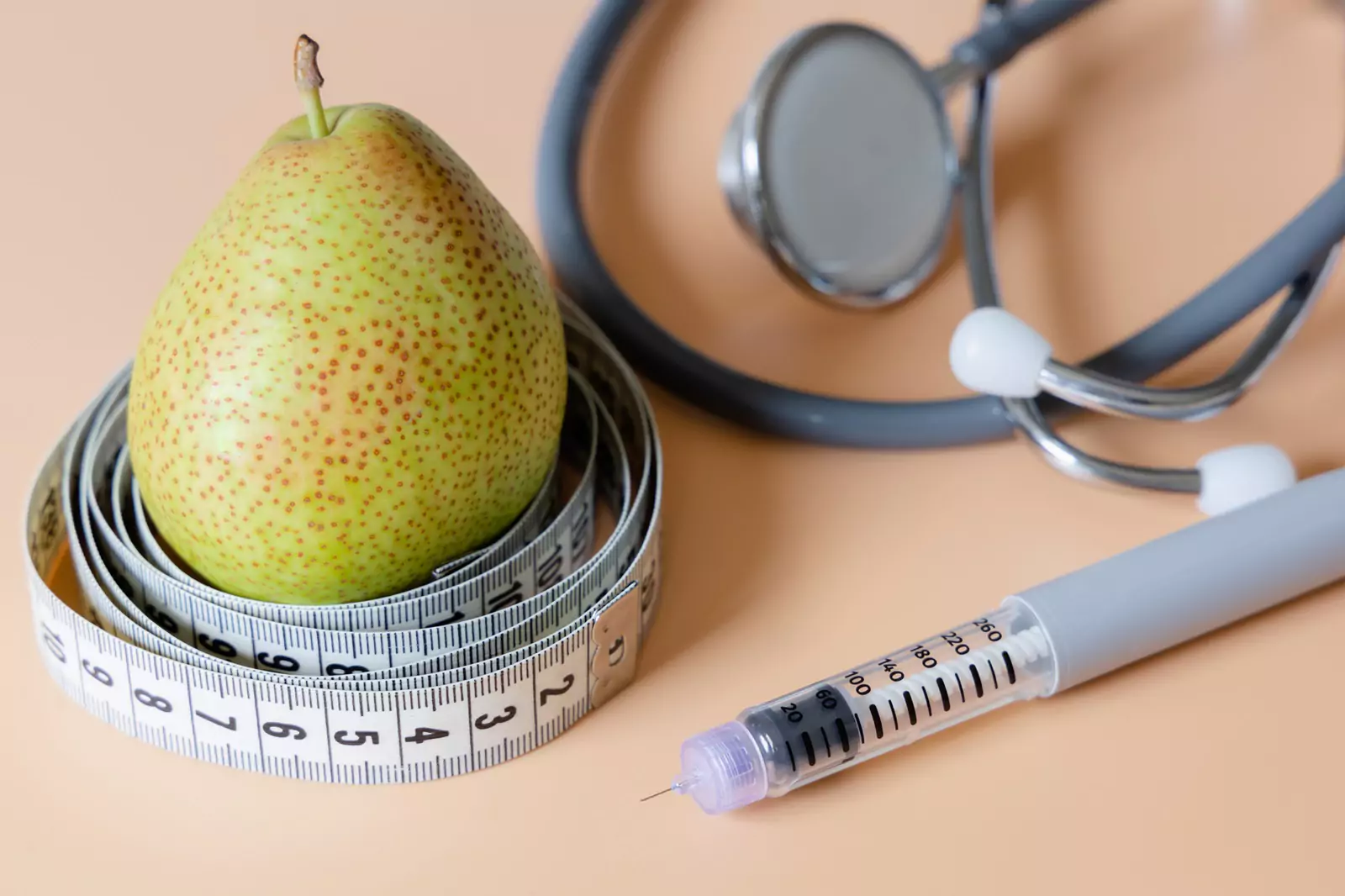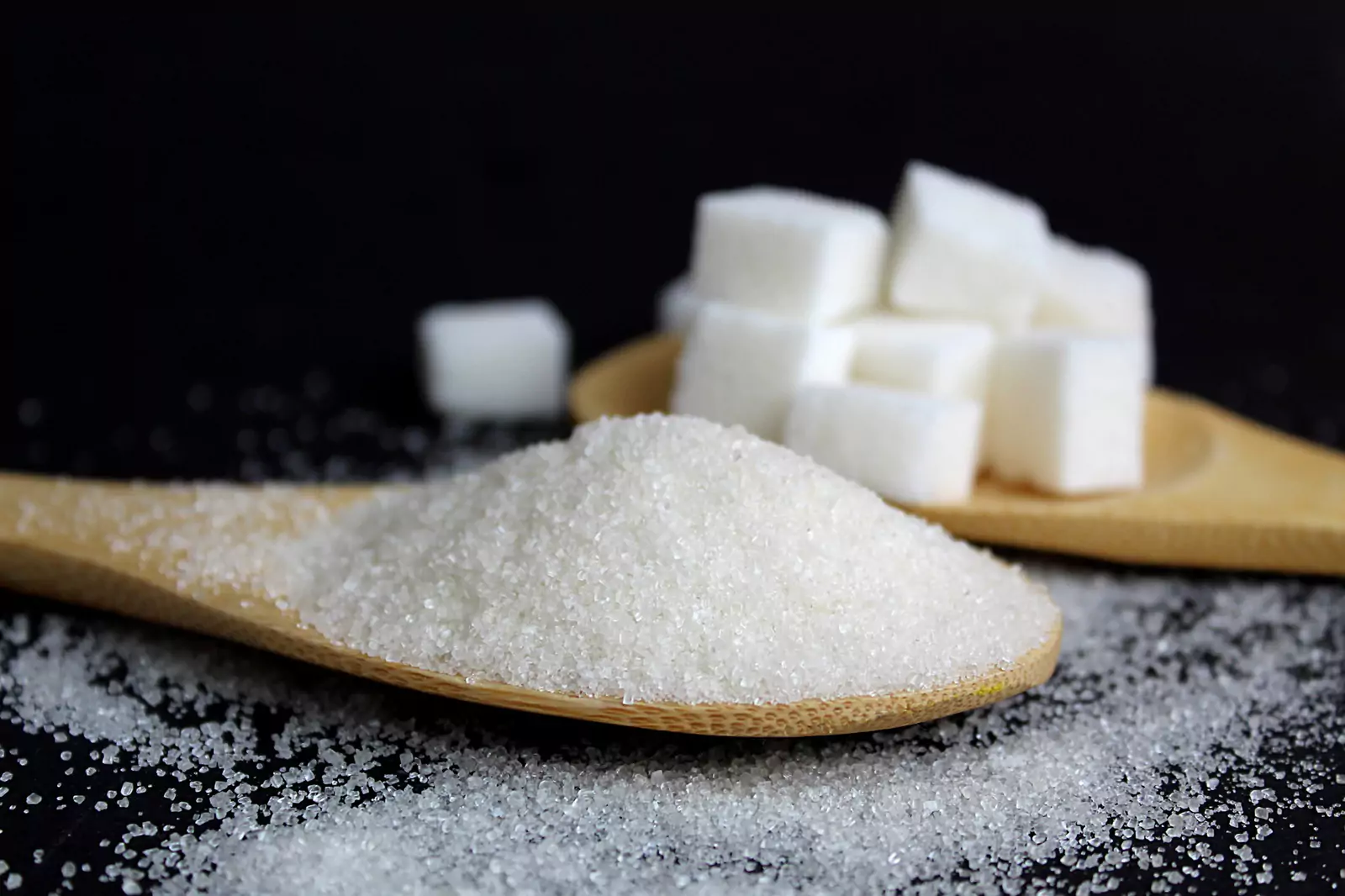
UP TO 40% OFF SITEWIDE






Can you Drink Milk with Diabetes?


Table of Contents
- What is diabetes?
- What is the Glycemic Index?
- Milk and Diabetes
- Nutritional content of Milk
- Impact of Milk on blood sugar levels
- Sugarmd Advance Glucose Support
- Benefits of Milk for People with Diabetes
- Risks of drinking Milk for people with Diabetes
- Factors to consider when drinking Milk with Diabetes
- SugarMD Super Berberine
- Alternatives to Milk for people with Diabetes
- Non-Dairy Milk options
- Plant-based Milk options
- Conclusion
- About The Author
For those living with diabetes, you may be wondering 'Can I drink Milk with Diabetes?' The good news is that drinking Milk with diabetes is not only possible, it may even be beneficial. In this article, we'll discuss the effects of Milk on blood sugar levels the importance of the Glycemic Index the nutritional content of Milk and the benefits and drawbacks of different types of Milk.
We'll also provide you with healthier alternatives to Milk that may benefit people with diabetes. No matter your dietary needs, understanding the impact of Milk on diabetes is important for everyone with the condition. By the end of this article, you'll know exactly what to look for when choosing Milk for your diabetes meal plan.
What is diabetes?
Diabetes is a metabolic disorder where the body is either unable to produce enough insulin or unable to properly use the insulin it produces. Insulin is a hormone produced in the pancreas, responsible for regulating the amount of sugar in the blood. When a person has diabetes they must monitor their blood sugar levels which can be done with a glucometer. Monitoring the level of sugar in the blood reveals how the body is responding to food and insulin administration.
The two most common types of diabetes are type 1 diabetes and type 2 diabetes. Type 1 diabetes is a result of the body being unable to produce insulin and type 2 diabetes is a result of the body not properly responding to the insulin it produces. Both types of diabetes will require the person to monitor their blood glucose levels and adjust their insulin and diet accordingly.
What is the Glycemic Index?
The glycemic index is a measure of how quickly and how strongly certain carbohydrates affect blood sugar levels. The index is based on a scale of 0 to 100, with pure glucose as the reference food and set at the benchmark of 100.
Foods with a glycemic index of less than 55 are considered to be low-glycemic carbohydrates, while foods with a glycemic index of more than 70 are considered to be high-glycemic carbohydrates. Milk, like other carbohydrates, is assigned a glycemic index. Full fat milk has a glycemic index of 34, while low fat milk has a glycemic index of 32.
This means that both types of milk are considered to be low-glycemic carbohydrates and should not raise blood sugar levels too quickly or too much. For individuals with diabetes, it is important to monitor the amount of carbohydrates they consume as well as the glycemic index of the carbohydrates.
While low-glycemic carbohydrates such as milk can be consumed in moderation, high-glycemic carbohydrates should generally be avoided. Consulting with a doctor or nutritionist can help individuals manage their blood sugar levels and make informed decisions about what types of carbohydrates to include in their diets.
Milk and Diabetes
Milk is a popular beverage among adults and children alike and it can be a nutritious addition to many diets. But, when it comes to diabetes, is it safe to consume? Can you drink milk with diabetes? The answer is yes – in moderation. Milk can fit into a diabetes-friendly diet as long as it’s low in sugar and other carbohydrates.
The American Diabetes Association recommends that people with diabetes choose low-fat versions such as skim, 1% or 2% milk. Dairy products like yogurt, cheese and cottage cheese can also be part of a healthy diabetic diet. However, it is important to keep portions in mind.
People with diabetes should still limit their daily dairy intake to the recommended three servings per day. Those servings should be controlled amounts of no more than one cup each. Drinks like chocolate milk or sweetened coffee beverages can be too high in sugar and should be avoided. In addition to eating low-fat dairy in moderation, people with diabetes should also take into account the carbohydrates found in dairy products.
The carbohydrates in cow’s milk, for example, are considered complex carbohydrates and are better for blood sugar control than simple carbohydrates such as table sugar or high-fructose corn syrup. Overall, people with diabetes can enjoy dairy in their diet as long as they watch their carbohydrate intake.
Dairy products can add important nutrients such as calcium and vitamin D, to a diabetes-friendly diet. But, it is important to be mindful when selecting dairy items and to watch portion sizes.
Nutritional content of Milk
When asking the question of whether or not someone with diabetes can drink milk, it is important to understand the nutritional content of milk and how it may affect blood sugar levels. Cow’s milk is a rich source of protein, carbohydrates and fat. It is also abundant in vitamins and minerals, including vitamins A and D, potassium, magnesium and phosphorus.
The carbohydrates found in milk are composed of two simple sugars, lactose and glucose. Lactose is the more dominant form of carbohydrate in milk, making up around 4.8 grams per cup, while glucose makes up less than 1 gram. Lactose is important for digestion and absorption of calcium and must be broken down by the body into glucose before it can be absorbed into the bloodstream.
Cow’s milk also contains fat, with an average of 8 grams per cup. Fat is important for providing energy and supporting growth but it can raise blood sugar levels and must be monitored carefully.
As such, people with diabetes may benefit from choosing low-fat milk. Milk is also a source of protein, with 8 grams per cup. Protein provides important amino acids for growth and repair and is important for maintaining muscle mass and helping to balance blood sugar levels.
| Type of Milk | Serving Size (oz) | Calories | Total Fat (g) | Saturated Fat (g) | Cholesterol (mg) | Sodium (mg) | Total Carbohydrates (g) | Sugars (g) | Protein (g) |
| Whole Milk | 8 | 150 | 8 | 5 | 30 | 125 | 12 | 12 | 8 |
| 2% Milk | 8 | 120 | 5 | 3 | 20 | 125 | 12 | 12 | 8 |
| 1% Milk | 8 | 100 | 2.5 | 1.5 | 10 | 125 | 12 | 12 | 8 |
| Skim Milk | 8 | 80 | 0 | 0 | 5 | 125 | 12 | 12 | 8 |
| Almond Milk | 8 | 60 | 2.5 | 0 | 0 | 105 | 7 | 1 | 1 |
| Soy Milk | 8 | 80 | 4 | 0.5 | 0 | 105 | 4 | 1 | 7 |
| Rice Milk | 8 | 120 | 2.5 | 0 | 0 | 105 | 26 | 0 | 1 |
Note: The above values are for reference only and may vary based on the brand and specific product. It is important to always check the nutrition label to ensure accuracy. In conclusion, milk is a nutritious and versatile food that can be consumed by people with diabetes but in moderation and with consideration for the individual’s overall dietary needs.
It is important to carefully monitor carbohydrate and fat intake and people with diabetes may benefit from choosing low-fat milk varieties. Regular monitoring of blood sugar levels is also essential to help avoid any negative effects from consuming milk.
Impact of Milk on blood sugar levels
When it comes to managing diabetes, it's important to consider the impact that certain foods can have on blood sugar levels. Milk is no exception. Although milk is a nutritious and highly recommended part of a healthy and balanced diet, drinking milk can affect blood sugar levels in both positive and negative ways.
First and foremost, it is important to note that milk is considered a carbohydrate which means that it can have an impact on blood sugar levels. Milk and milk products contain the sugar lactose and research has shown that the ingestion of lactose can cause short-term spikes in blood glucose.
Generally speaking these spikes are not extreme and should not be cause for concern but diabetics should be aware of this effect. In addition to lactose, milk also contains carbohydrates in the form of milk proteins. The carbohydrates that are present in milk proteins are much slower to digest and absorb into the bloodstream.
While this can be beneficial to people with diabetes, it is important to note that these carbohydrates can still affect blood glucose levels and should be taken into consideration when making food choices for diabetes management. Another important thing to note is that milk can be a source of dietary fat.
For this reason, it is important to consider the total amount of fat that is being consumed when drinking milk. Eating too much fat can cause spikes in blood glucose levels and diabetics should be wary of this effect. Finally, it is important to consider the calorie content of milk when making food choices for diabetes management.
Milk contains a high amount of calories and consuming too many calories can lead to weight gain which in turn can affect blood sugar levels. In conclusion, while milk can have an effect on blood sugar levels, it is generally considered safe for diabetics to drink milk in moderation.
However, it is important to consider the carbohydrate, fat and caloric content of milk when making food choices for diabetes management. In short the key takeaway is that it is possible for people with diabetes to drink milk,but precautions should be taken to ensure that blood sugar levels remain within a safe range.
Sugarmd Advance Glucose Support
Maintaining healthy blood sugar levels can be a challenge. From carby meals to snacks and even with all the effort, it’s still not enough. That’s where SugarMD Advanced Glucose Support comes in. Our blend of traditional Ayurvedic herbs helps regulate blood sugar levels, curbs cravings, supports weight loss, boosts metabolism and energy. Endorsed by endocrinologists, this unique formula of pure, potent herbs promotes overall blood sugar health. Ideal for both pre-diabetics and Type 2 diabetics.
Benefits of Milk for People with Diabetes
For people with diabetes, milk can help regulate blood glucose levels. The protein found in milk can help reduce postprandial (after eating) blood sugar levels in individuals with type 2 diabetes. Studies have also linked milk intake with improved insulin sensitivity which can help reduce the risk of developing type 2 diabetes.
Milk also contains probiotics, beneficial bacteria that help improve digestion and boost immune function. Furthermore, research suggests that consuming probiotics may help reduce the risk of developing certain types of diabetes. Milk is also a good source of omega-3 fatty acids which are essential for cardiovascular health.
Studies have shown that omega-3 fatty acids can help lower triglyceride levels and reduce inflammation. This can help reduce the risk of cardiovascular disease which is a common complication of diabetes. In short, milk can provide numerous benefits for people with diabetes.
While there are also risks associated with milk consumption such as increased risk of weight gain and high blood pressure these risks can be minimized by incorporating milk into a balanced diet. For those with diabetes, milk can offer important health benefits.
Risks of drinking Milk for people with Diabetes
Milk and dairy products are high in carbohydrate and contain the sugar lactose. Consuming dairy products can increase blood sugar levels, particularly if eaten in large amounts and without proper dietary control. Therefore, it is important to maintain portion control with dairy items. The American Diabetes Association suggests that individuals with diabetes limit their intake of dairy products as these items can affect glucose control.
Additionally, individuals should read nutrition labels and select low-fat or reduced-fat dairy products such as skim milk, low-fat yogurt and part-skim cheese. In terms of vitamin and nutrient intake, dairy products provide a much-needed source of calcium and protein. However, if individuals are unable to include dairy in their diet there are other calcium and protein sources available such as greens, tofu and nuts.
Dairy products can also cause problems for individuals who are lactose intolerant or who have an allergy to cow’s milk protein. If an individual’s diabetes is being managed through diet they should avoid delicious dairy products that are high in fat and sugar as these can lead to weight gain and an increased risk of developing diabetes-related complications.
In summary, while it is a good idea to include dairy products in a healthy diet, individuals with diabetes should monitor their intake and watch their portion sizes. It is also important to read nutrition labels and opt for low-fat or reduced-fat options.
People with diabetes should speak to a doctor or nutritionist about their dietary needs in order to make sure that their dietary choices are appropriate for their health and lifestyle. Ultimately the answer to the question "Can you drink milk with diabetes?" is yes, with caution.
Factors to consider when drinking Milk with Diabetes
When considering whether you can drink milk with diabetes there are a few things to consider. First the amount of milk you’re drinking matters. In general, it’s a good idea to limit your milk intake to no more than one to two servings a day. Each serving should be eight ounces or less. This helps to keep your calorie and sugar intake in check. Second the type of milk matters.
Low fat milk is the best option for someone with diabetes as it’s lower in saturated fat and calories. Avoid full-fat milk or milk that has been flavored with sugar or sugar substitutes. Thirdly, milk can still be part of a healthy, balanced diet, even for someone with diabetes. It contains key vitamins, minerals and other nutrients like calcium and vitamin D.
Milk can also help to fill you up, making it a great snack between meals. Finally, it’s important to monitor your blood sugar levels closely when drinking milk. Milk is considered to be low on the glycemic index but it can still cause an increase in blood glucose levels if consumed too often or in large quantities. So, it’s important to be mindful of your portion size and the type of milk you are drinking.
In conclusion, it’s possible to drink milk with diabetes—as long as it's consumed in moderation. Low fat milk is the best option and it’s important to closely monitor your blood sugar levels when drinking milk. Overall, milk can still be part of a healthy, balanced diet for someone with diabetes.
SugarMD Super Berberine

SugarMD Super Berberine is a superior supplement for those seeking to maintain healthy glucose metabolism and reduce inflammation. Unlike other supplements, it utilizes a potent blend of dihydroberberine and 100% pure Ceylon cinnamon to ensure that blood sugar remains in a healthy range. Additionally, this formula is safe and effective for long-term use.
Regular use of this product will lead to a significant reduction in inflammation which is a well-known contributor to a wide range of health issues. If you're looking for a supplement that can help you maintain healthy glucose levels while reducing inflammation, SugarMD Super Berberine is the perfect choice.
Alternatives to Milk for people with Diabetes
Non-Dairy Milk options
Soy milk is a popular non-dairy alternative. It is low in fat and sugars and contains iso-flavanoids which are compounds that are thought to reduce the risk of heart disease. Soy milk is also high in protein and contains many of the same vitamins and minerals found in cow’s milk, including calcium and vitamin D. An 8-ounce glass of soy milk contains about 80 calories.
Almond milk is a great alternative for those trying to reduce their calorie and fat intake. A glass of unsweetened almond milk contains about 30 calories and 2.5 grams of fat. Almond milk is also higher in calcium than other non-dairy milks, providing about 45 percent of the recommended daily value.
Rice milk is a naturally sweet alternative that is easy to digest. It is also a great source of essential minerals such as calcium, magnesium and iron. A cup of unsweetened rice milk contains about 120 calories and 1.5 grams of fat. Coconut milk is a dairy-free option that is high in lauric acid, a fatty acid that is thought to have anti-inflammatory properties and may help improve cholesterol levels.
Coconut milk is also high in calories and fat, with a cup containing about 120 calories and 10 grams of fat. Overall the best choice for those with diabetes will depend on their health goals and individual dietary needs. While cow’s milk is a great source of essential nutrients, non-dairy milk options may be better suited for those trying to reduce their calorie and fat intake. Non-dairy milk can be a healthy and delicious alternative to cow's milk, providing essential vitamins and minerals without the added sugar and fat.
Plant-based Milk options
For individuals with diabetes there are a number of options available when considering the consumption of milk. For those who are lactose-intolerant, vegan or simply looking for a lower-calorie alternative to dairy milk, plant-based milks offer a great alternative to traditional dairy-based milks. Some of the most popular plant-based milks include soy, almond, coconut, hemp, oats and rice.
Soy milk is perhaps the most popular of all the plant-based milks and is made from the whole soybean plant. Soy milk is full of vitamins and minerals, including calcium, magnesium, phosphorus and B vitamins. Soy milk is considered to be one of the most nutritious plant-based milks and is naturally low in calories and fat. It is a great source of protein and is low on the glycemic index.
Hemp milk is made from the seeds of the hemp plant. It is a great source of essential fatty acids Omega-3 and Omega-6 as well as other vitamins, minerals and amino acids. Hemp milk is naturally low in calories and fat and is low on the glycemic index. Oat milk is made from oats and is a great source of fiber and B vitamins. Oat milk is naturally low in fat and calories and is lactose-free and low on the glycemic index.
Rice milk is made from brown rice and is a great source of calcium and other minerals. It is naturally low in fat and calories and is lactose-free and low on the glycemic index. It is a great alternative to traditional dairy-based milks for those with diabetes.
Conclusion
In conclusion, it is important for people with diabetes to consider their options for choosing milk and other dairy products carefully. Your health care provider can work with you to assess your individual risk factors and determine the best milk for your diet.
Additionally, you may want to consider trying some of the alternative milk options available such as non-dairy milk or plant-based milk as a substitute for dairy milk. While both have benefits and drawbacks they may be beneficial in certain situations. Ultimately, choosing the right milk for your diabetes is a matter of finding the best balance of nutrition, convenience and taste.
About The Author
Meet Dr. Ahmet Ergin a highly skilled and dedicated endocrinologist with a passion for diabetes care. Dr. Ergin earned his medical degree with honors from Marmara University in Istanbul. He completed internal medicine residency and endocrinology fellowship at Cleveland Clinic.
Dr. Ergin is board-certified in Internal Medicine, Endocrinology, Diabetes and Metabolism due to his vast medical expertise. He's a certified diabetes educator, author of "The Ultimate Diabetes Book," and founder of "the SugarMD YouTube channel." Dr. Ergin offers exceptional diabetes care to his patients in Port Saint Lucie, FL, helping them manage effectively.
Disclaimer: The website's disease and treatment info is general guidance and not a substitute for professional healthcare advice. Seek professional advice for personalized diagnosis and treatment plans to ensure accurate and effective care. Consult a qualified healthcare professional for any questions about your health and wellness.
Written By Dr. Ahmet Ergin
466 total articles
Meet Dr. Ahmet Ergin, a highly skilled and dedicated endocrinologist with a passion for diabetes care. Dr. Ergin earned his medical degree with honors from Marmara University in Istanbul. He completed internal medicine residency and endocrinology fellowship at Cleveland Clinic. Dr. Ergin is board-certified in Internal Medicine, Endocrinology, Diabetes, and Metabolism due to his vast medical expertise. He's a certified diabetes educator, author of “The Ultimate Diabetes Book,” and founder of “the SugarMD YouTube channel.” Dr. Ergin offers exceptional diabetes care to his patients in Port Saint Lucie, FL, helping them manage effectively. For a closer look into his insights and experiences, connect with Dr. Ahmet Ergin on LinkedIn, Instagram, and YouTube.”
Disclaimer: These statements have not been evaluated by the Food and Drug Administration. Information on this website isn't intended to treat, cure or prevent any disease. Discuss with your doctor and do not self-treat.
Products















